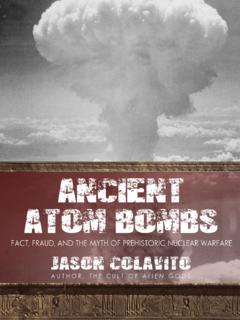Transcription of Maat, The Moral Ideal in Ancient Egypt: A Study in ...
1 Maat, The Moral Ideal in Ancient egypt : A Study in classical african Ethicsby Maulana KarengaMaat, The Moral Ideal in Ancient egypt : A Study in classical african ethics is anunprecedented work which engages the Ancient Egyptian ethical and spiritualprinciple, Maat, from an african -centered perspective. It posses Maatian thought as arich resource for reflection on modern Moral and social issues. Professor Karengadraws on a wide range of literary, historical and archeological sources to recover andreconstruct this Ancient ethical tradition in a dual process of interpretation andtransmission."Professor Karenga's massive scholarly tome is the definitive work on classicalAfrican ethics and an essential authoritative source for the scholar and general readerinterested in Ancient Kemetic ethics , religion and culture. Indeed, it is difficult toimagine any serious consideration of the cultural ideals, values and thought ofancient Kemet without reference to this seminal work .
2 "Molefi Kete Asante, Professor of african American Studies, Temple University"With Professor Karenga's the reception of egypt is entering a new phase. (It)is the first attempt to revitalize a completely forgotten tradition of highest could only be achieved by someone embodying the skills and characteristics of afull-fledged Egyptologist and the competence and commitment of an equally full-fledged african American philosopher. Karenga is both. His book is an example ofthe finest Egyptological scholarship and it will certainly prove to be of highestinterest for the ongoing debates in philosophy and Black Studies."Jan Assman, Professor of Egyptology, University of Heidelberg"The governing interest of this work is to present a critical exposition of Maat, themoral Ideal in Ancient egypt , with the parallel purpose of providing as view of waysin which this Ancient Moral tradition informed the dawn of human Moral reflectionand offers concepts and modes of thought useful for modern Moral discourse andphilosophic reflection.
3 " -- page 407"Maat in its most expansive sense as rightness in and of the world is thephilosophical locus in which all the critical questions in Ancient Maatian and modernMaatian thought converge and ground themselves. Maat insists on a holistic view ofthe Moral Ideal , one that gives rightful and adequate attention to self, society and theworld as component parts of an interrelated order of rightness. The ongoing quest,then, is to maintain, renew, repair, and enhance this order as self-conscious creatorsand bringers of the good in the word in a process and practice called serudj ta -restoring, repairing and renewing the world. Such a world-encompassing concept ofmoral practice invites us to move beyond narrow notions of self, national and evenspecies interest and understand and assert ourselves as members of an interrelatedAbout the AuthorDr. Maulana Karenga is professor of the Department of Black Studies atCalifornia State University, Long Beach. An activist intellectual of national andinternational recognition, he is the executive director of the Kawaida Institute of Pan- african Studies, and Chair of the Organization Us and the National Association oforder of existence in the world.
4 At this juncture, Maatian discourse offers acontribution to modern Moral deliberation about human fragmentation and theongoing quest to return to an integrity and wholeness of human life that endsdivision of the social and natural world, mind and body, the past, present andfuture." -- page 408 About the AuthorDr. Maulana Karenga is professor of the Department of Black Studies atCalifornia State University, Long Beach. An activist intellectual of national andinternational recognition, he is the executive director of the Kawaida Institute of Pan- african Studies, and Chair of the Organization Us and the National Association ofKawaida Organizations. An accomplished social theorist and ethical philosopher inAfrican culture, he writes and teaches courses on Continental african and AfricanAmerican philosophy with focus on Ancient Egyptian and Ancient Yoruba ethicalphilosophy. Also, he is the creator of the Pan- african holiday Kwanzaa and theNguzo Saba (The Seven Principles) and the author of numerous books including:Selections From the Husia: Sacred Wisdom of Ancient egypt , The Book of Coming Forth ByDay: The ethics of the Declarations of Innocence, Odu Ifa: The Ethical Teachings, Kwanzaa:A Celebration of Family, Community and Culture, and Introduction to Black Studies.




